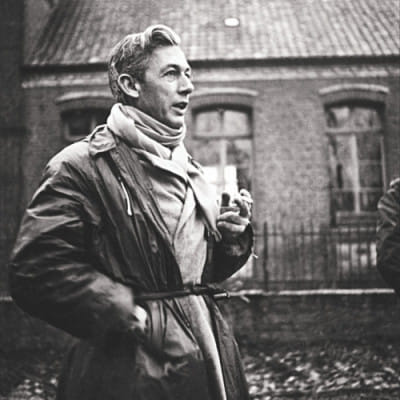Robert Bresson

Robert Bresson was a film director known for his spiritual and ascetic direction styles. Born at Bromont-Lamothe, France, the son of Marie-Élisabeth and Léon Bresson, Bresson was educated at Lycée Lakanal, close to Paris, and turned to painting right after his graduation. There have been three decisive influences in his early life that have made an impact throughout his films; they are art, Catholicism and his experiences as a prisoner of war. He started his career as a photographer, eventually transitioning into films with his first short film "Les Affaires Publiques" in 1934. His career spanned over fifty years, in which he made only 13 feature-length films, reflecting his personal approach to the filmmaking process, which is very meticulous, and his tendency to avoid commercial preoccupations.
Bresson's focus in his early films was to distinguish the language of cinema to that of the theatre, which often depends profoundly upon the actor's performance to drive the work. He came up with the "actor-model", which required them to repeat multiple takes of each segment until all appearance of performance were taken away; leaving a barren effect that comes as both raw and subtle. Bresson's restraint in musical scoring also had a major influence on minimalist cinema. Most of his films had recurring themes such as redemption, salvation, defining the human soul and metaphysical transcendence of a limiting and materialistic world.

The director opposed the pre-war French Cinema, by offering his own unique ascetic styles. He achieved a high position among the founders of the French New Wave. He is considered as one of the main figures who influenced the New Wave. Bresson, however, was not involved with politics as much as the other founders had been. His religious views were not attractive to most directors associated with the movement. Bresson has been listed by François Truffaut to be among the few directors to whom the term "auteur" can be applied. He is often referred to as a patron saint of cinema, for both his notable contributions to the art of film and the strong Catholic themes found throughout his work. His directing styles include using sound in a unique way, where he associates selected sounds with images or characters.
Bresson is among the highly regarded French filmmakers of all time. According to veteran director Jean-Luc Godard, Robert Bresson is French cinema, as Dostoyevsky to Russian novel and Mozart is to German music. The legendary director passed away on December 18, 1999, in Paris.

 For all latest news, follow The Daily Star's Google News channel.
For all latest news, follow The Daily Star's Google News channel. 



Comments